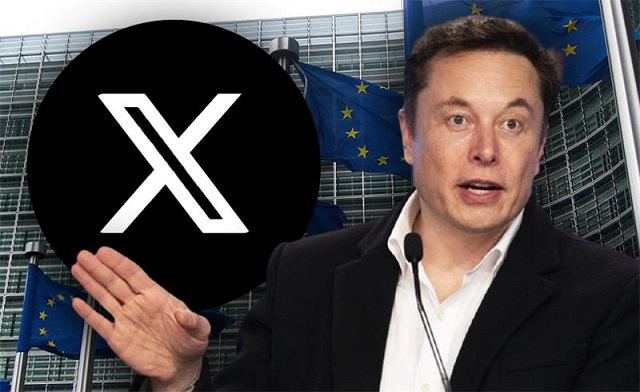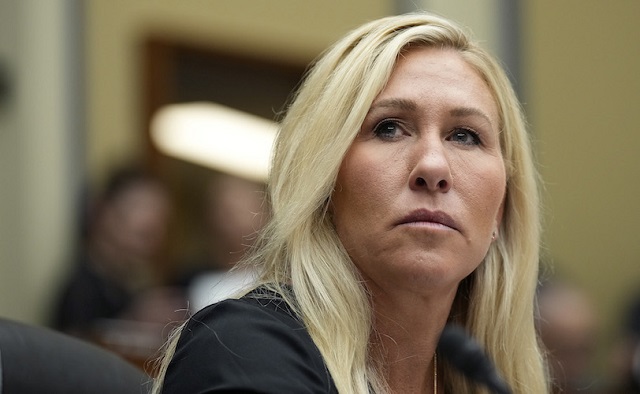Censorship Industrial Complex
Elon Musk said the EU offered X an ‘illegal deal’ if it would quietly censor speech

From LifeSiteNews
‘The European Commission offered 𝕏 an illegal secret deal: if we quietly censored speech without telling anyone, they would not fine us,’ Elon Musk wrote on July 12.
Elon Musk has said that the European Union (E.U.) offered his social media platform X an “illegal deal” to quietly censor speech so the company would not get fined.
“The European Commission offered 𝕏 an illegal secret deal: if we quietly censored speech without telling anyone, they would not fine us,” Musk wrote on X on July 12.
“The other platforms accepted that deal. 𝕏 did not,” he added.
The tech billionaire posted these comments in response to a post by Margrethe Vestager, the Vice-President of E.U.’s Digital Commission. She wrote that X “doesn’t comply with the DSA [Digital Service Act] in key transparency areas.”
Musk announced he will take the E.U. “to a very public battle in court, so that the people of Europe can know the truth.”
Thierry Breton, the E.U.’s Commissioner for Internal Market, responded to the tech billionaire, denying the existence of a “secret deal” offered to X and other social media platforms.
“There has never been — and will never be — any ‘secret deal.’ With anyone,” Breton insisted.
“The DSA provides X (and any large platform) with the possibility to offer commitments to settle a case.”
“To be extra clear: it’s *YOUR* team who asked the Commission to explain the process for settlement and to clarify our concerns.”
“We did it in line with established regulatory procedures,” he continued. “Up to you to decide whether to offer commitments or not. That is how rule of law procedures work.”
The E.U. introduced the Digital Service Act (DSA) in August 2023. It grants the E.U. Commission the power to impose heavy fines on large social media platforms operating in the E.U. if they do not comply with its rules on so-called “disinformation” and “hate speech.” Back in August last year, Breton even threatened to shut down social media platforms if they do not comply with the rules in the case of civil unrest, like the riots in France at the time.
As former Trump State Department official Michael Benz pointed out, the E.U. collaborated closely with the left-wing, globalist news rating organization NewsGuard, whose personnel is entangled with the U.S. intelligence agencies and other parts of the U.S. government.
In 2021, the Department of Defense awarded NewsGuard $750,000 for its project “Misinformation Fingerprints,” which aims to combat what it calls “a catalogue of known hoaxes, falsehoods and misinformation narratives that are spreading online.”
Censorship Industrial Complex
Ottawa’s New Hate Law Goes Too Far

From the Frontier Centre for Public Policy
By Lee Harding
Ottawa says Bill C-9 fights hate. Critics say it turns ordinary disagreement into a potential crime.
Discriminatory hate is not a good thing. Neither, however, is the latest bill by the federal Liberal government meant to fight it. Civil liberties organizations and conservative commentators warn that Bill C-9 could do more to chill legitimate speech than curb actual hate.
Bill C-9 creates a new offence allowing up to life imprisonment for acts motivated by hatred against identifiable groups. It also creates new crimes for intimidation or obstruction near places of worship or community buildings used by identifiable groups. The bill adds a new hate propaganda offence for displaying terrorism or hate symbols.
The Canadian Civil Liberties Association (CCLA) warns the legislation “risks criminalizing some forms of protected speech and peaceful protest—two cornerstones of a free and democratic society—around tens of thousands of community gathering spaces in Canada.” The CCLA sees no need to add to existing hate laws.
Bill C-9 also removes the requirement that the Attorney General consent to lay charges for existing hate propaganda offences. The Canadian Constitution Foundation (CCF) calls this a major flaw, noting it removes “an important safeguard for freedom of expression that has been part of Canada’s law for decades.” Without that safeguard, decisions to prosecute may depend more on local political pressures and less on consistent national standards.
Strange as it sounds, hatred just will not be what it used to be if this legislation passes. The core problem begins with how the bill redefines the term itself.
Previously, the Supreme Court of Canada said hatred requires “extreme manifestations” of detestation or vilification that involve destruction, abhorrence or portraying groups as subhuman or innately evil. Instead, Bill C-9 defines hatred as “detestation or vilification,” stronger than “disdain or dislike.” That is a notably lower threshold. This shift means that ordinary political disagreement or sharp criticism could now be treated as criminal hatred, putting a wide range of protected expression at real risk.
The bill also punishes a hateful motivation more than the underlying crime. For example, if a criminal conviction prompted a sentence of two years to less than five years, a hateful motivation would add as much as an additional five years of jail time.
On paper, most Canadians may assume they will never be affected by these offences. In practice, the definition of “hate” is already stretched far beyond genuine threats or violence.
Two years ago, the 1 Million March for Children took place across Canada to protest the teaching of transgender concepts to schoolchildren, especially the very young. Although such opposition is a valid position, unions, LGBT advocates and even Newfoundland and Labrador Conservatives adopted the “No Space For Hate” slogan in response to the march. That label now gets applied far beyond real extremism.
Public pressure also shapes how police respond to protests. If citizens with traditional values protest a drag queen story hour near a public library, attendees may demand that police lay charges and accuse officers of implicit hatred if they refuse. The practical result is clear: officers may feel institutional pressure to lay charges to avoid being accused of bias, regardless of whether any genuine threat or harm occurred.
Police, some of whom take part in Pride week or work in stations decorated with rainbow colours in June, may be wary of appearing insensitive or intolerant. There have also been cases where residents involved in home invasion incidents were charged, and courts later determined whether excessive force was used. In a similar way, officers may lay charges first and allow the courts to sort out whether a protest crossed a line. Identity-related considerations are included in many workplace “sensitivity training” programs, and these broader cultural trends may influence how such situations are viewed. In practice, this could mean that protests viewed as ideologically unfashionable face a higher risk of criminal sanction than those aligned with current political priorities.
If a demonstrator is charged and convicted for hate, the Liberal government could present the prosecution as a matter for the justice system rather than political discretion. It may say, “It was never our choice to charge or convict these people. The system is doing its job. We must fight hate everywhere.”
Provincial governments that support prosecution will be shielded by the inability to show discretion, while those that would prefer to let matters drop will be unable to intervene. Either way, the bill could increase tensions between Ottawa and the provinces. This could effectively centralize political authority over hate-related prosecutions in Ottawa, regardless of regional differences in values or enforcement priorities.
The bill also raises concerns about how symbols are interpreted. While most Canadians would associate the term “hate symbol” with a swastika, some have linked Canada’s former flag to extremism. The Canadian Anti-Hate Network did so in 2022 in an educational resource entitled “Confronting and preventing hate in Canadian schools.”
The flag, last used nationally in 1965, was listed under “hate-promoting symbols” for its alleged use by the “alt-right/Canada First movement” to recall when Canada was predominantly white. “Its usage in modern times is an indicator of hate-promoting beliefs,” the resource insisted. If a historic Canadian symbol can be reclassified this easily, it shows how subjective and unstable the definition of a “hate symbol” could become under this bill.
These trends suggest the legislation jeopardizes not only symbols associated with Canada’s past, but also the values that supported open debate and free expression. Taken together, these changes do not merely target hateful behaviour. They create a legal framework that can be stretched to police dissent and suppress unpopular viewpoints. Rest in peace, free speech.
Lee Harding is a research fellow for the Frontier Centre for Public Policy.
Censorship Industrial Complex
Conservative MP calls on religious leaders to oppose Liberal plan to criminalize quoting Scripture

From LifeSiteNews
Quoting the Bible, Quran, or Torah to condemn abortion, homosexuality, or LGBT propaganda could be considered criminal activity
Conservatives are warning that Canadians should be “very afraid” of the Liberals’ proposal to punish quoting Scripture, while advising religious leaders to voice their opposition to the legislation.
During a December 6 session in Parliament, Conservative Member of Parliament (MP) Larry Brock warned Canadians of the very real threat to their religious freedom thanks to proposed amendments to Bill C-9, the “Combating Hate Act,” that would allow priests quoting Scripture to be punished.
“Do Christians need to be concerned about this legislation?” MP Bob Zimmer questioned. “Does it really threaten the Bible and free speech in Canada?”
“They should be very afraid,” Brock responded. “Every faith leader should be very afraid as to what this Liberal government with the support of the Bloc Quebecois wishes to do.”
“As I indicated, religious freedom is under attack at the hands of this Liberal government,” he declared.
Brock stressed the need for religious leaders to “speak out loud and clear” against the proposed amendment and contact their local Liberal and Bloc MPs.
Already, the Canadian Conference of Catholic Bishops penned an open letter to the Carney Liberals, condemning the proposed amendment and calling for its removal.
As LifeSiteNews reported earlier this week, inside government sources revealed that Liberals agreed to remove religious exemptions from Canada’s hate speech laws as part of a deal with the Bloc Québécois to keep Liberals in power.
Bill C-9, as reported by LifeSiteNews, has been blasted by constitutional experts as empowering police and the government to go after those it deems to have violated a person’s “feelings” in a “hateful” way.
Now, the Bloc amendment seeks to further restrict free speech. The amendment would remove the “religious exemption” defense, which has historically protected individuals from conviction for willful promotion of hatred if the statements were made “in good faith” and based on a “religious subject” or a “sincerely held” interpretation of religious texts such as passages from the Bible, Quran, or Torah.
As a result, quoting the Bible, Quran, or Torah to condemn abortion, homosexuality, or LGBT propaganda could be considered criminal activity.
Shortly after the proposed amendment was shared on social media, Conservatives launched a petition, calling “on the Liberal government to protect religious freedom, uphold the right to read and share sacred texts, and prevent government overreach into matters of faith.”
Already, in October, Liberal MP Marc Miller said that certain passages of the Bible are “hateful” because of what it says about homosexuality and those who recite the passages should be jailed.
“Clearly there are situations in these texts where these statements are hateful,” Miller said. “They should not be used to invoke or be a defense, and there should perhaps be discretion for prosecutors to press charges.”
His comments were immediately blasted by Conservative politicians throughout Canada, with Alberta provincial Conservative MLA and Minister of Municipal Affairs Dan Williams saying, “I find it abhorrent when MPs sitting in Ottawa – or anyone in positions of power – use their voice to attack faith.”
-

 International2 days ago
International2 days agoTrump admin wants to help Canadian woman rethink euthanasia, Glenn Beck says
-

 COVID-192 days ago
COVID-192 days agoTrump DOJ seeks to quash Pfizer whistleblower’s lawsuit over COVID shots
-

 Alberta2 days ago
Alberta2 days agoThe case for expanding Canada’s energy exports
-

 Crime2 days ago
Crime2 days agoU.S. seizes Cuba-bound ship with illicit Iranian oil history
-

 Business1 day ago
Business1 day agoAlbertans give most on average but Canadian generosity hits lowest point in 20 years
-

 International2 days ago
International2 days agoMarjorie Taylor Greene’s ’60 Minutes’ interview reveals power struggle between populists and RINOs
-

 Censorship Industrial Complex1 day ago
Censorship Industrial Complex1 day agoOttawa’s New Hate Law Goes Too Far
-

 Daily Caller2 days ago
Daily Caller2 days agoUS Supreme Court Has Chance To End Climate Lawfare






